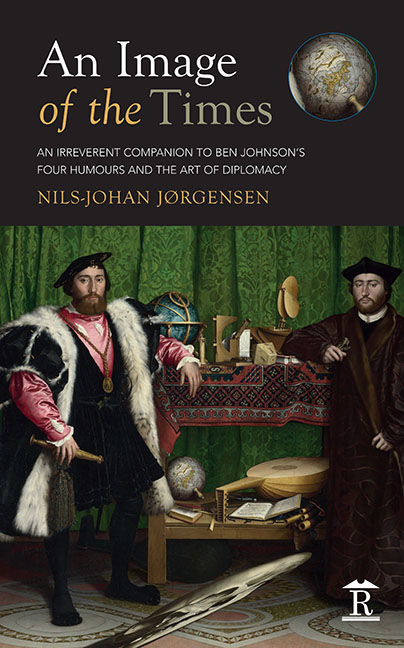Book contents
- Frontmatter
- Dedication
- OTHER WORKS IN ENGLISH BY THE SAME AUTHOR
- Contents
- Acknowledgements
- Induction
- Chapter 1 Ben Jonson and his Sources
- Chapter 2 Humorous Characterization in the Comedies of Ben Jonson
- Chapter 3 The Influence of Jonson on Seventeenth And Eighteenth-century Comedy
- Chapter 4 The Intrusion of Humorous Characterization into the English Novel
- Chapter 5 The Meaning of the Comic
- Chapter 6 Nomadic Humours
- Chapter 7 Unconscious Revelation
- Postscript
- Index
- Frontmatter
- Dedication
- OTHER WORKS IN ENGLISH BY THE SAME AUTHOR
- Contents
- Acknowledgements
- Induction
- Chapter 1 Ben Jonson and his Sources
- Chapter 2 Humorous Characterization in the Comedies of Ben Jonson
- Chapter 3 The Influence of Jonson on Seventeenth And Eighteenth-century Comedy
- Chapter 4 The Intrusion of Humorous Characterization into the English Novel
- Chapter 5 The Meaning of the Comic
- Chapter 6 Nomadic Humours
- Chapter 7 Unconscious Revelation
- Postscript
- Index
Summary
JONAS LIE, CELEBRATED as one of Norway's greatest writers, was born and went to school in a small town north of the Arctic Circle. He wrote an early tale called Den Fremsynte (The Visionary) in1870. It gives impressions of a remote society, the violent storms and crushing weight of nature on life in a dark winterland where the sun disappears for three months, but is then replaced by a magic summer where the sun is above the horizon for the whole twenty-four hours. It is as if the sun then kisses nature the more passionately because of the short time they can be together and they both seek to forget that they so soon have to part again.
Out of this brutal and beautiful Arctic coast the visionary character is formed. If there is sunshine in your face when you meet there will also be sunshine in his, but don't be misled by his good nature. Deep in his soul a silent suspicion is always stirring like a watchful seafowl. From childhood he has been used to think of the sudden events in nature as a sword hanging over every peaceful, quiet moment and he carries this instinct in human relations. He eludes you, steals with his imagination and his watchful suspicion in between and around your thoughts and without you suspecting it, he can go with his hands in his pockets, right through your soul. He is born with a talent for obfuscation. Jonas Lie concludes that he would be uvurderlig invaluable) as detective and diplomat.
I was born and went to school on an island far north of the Arctic Circle. I became a diplomat and it was part of the mission to be a detective.
- Type
- Chapter
- Information
- An Image of the TimesAn Irreverent Companion to Ben Jonson's Four Humours and the Art of Diplomacy, pp. 195 - 196Publisher: Amsterdam University PressPrint publication year: 2015



